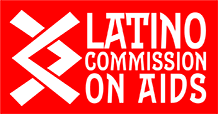|
Latinos in the Deep South
About The Latinos in the Deep South
Thousands of workers from Mexico and Central and South America have settled in the southern United States either as temporary workers or permanent residents. Provision of all social services for this population, including HIV prevention education and care, is lagging.
The Commission's Latinos in the Deep South seeks to compile information about the situation with regard to HIV prevention and care services currently available to these new communities in seven states: North and South Carolina, Georgia, Alabama, Mississippi, Tennessee and Louisiana, where the total Hispanic/Latino population now numbers approximately 2 million. The southeastern United States has the fastest growing Latino population in the country.
During the second year of the project, the Commission will develop initiatives with local partners in each state, based on the gaps identified, to promote actions to improve these services. So far, one statewide roundtable on HIV/AIDS and Latinos has been held (in Louisiana), and another is scheduled for Feb. 21 in Montgomery, Alabama.
AIDS agencies and other groups are taking action through creative and innovative strategies to respond to the needs of these growing communities, learning from successful efforts employed in reaching and serving other minority populations. The Commission is encouraged by the positive response to its Deep South initiative and welcomes new partners to join in the efforts to reduce HIV transmission among Hispanic residents and to provide optimum care for those who need it.
|
|
|


